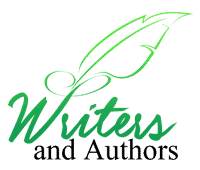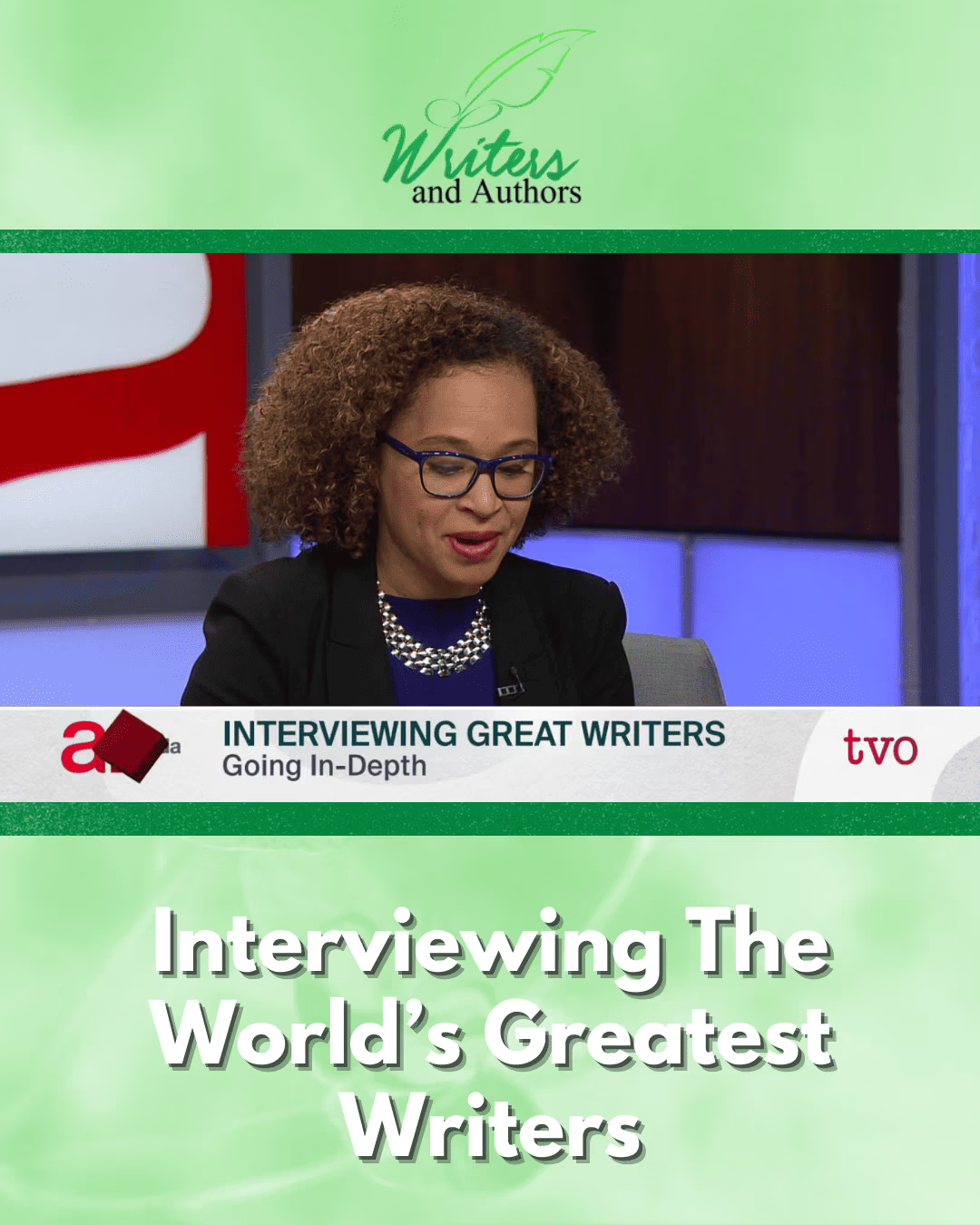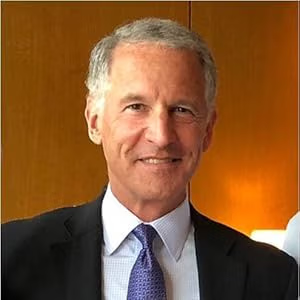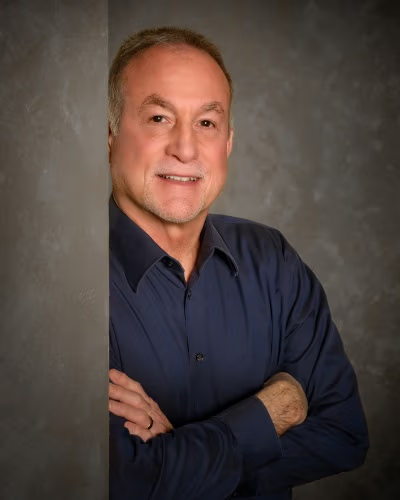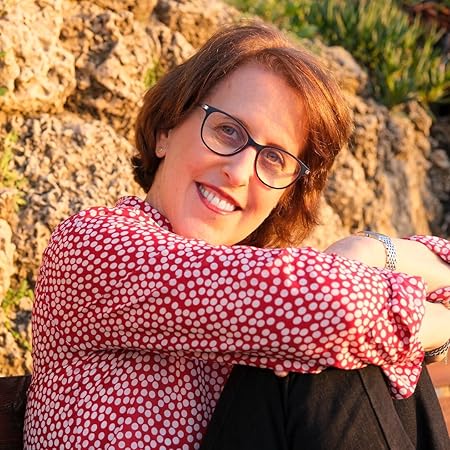PLEASE NOTE!! This is a Video Transcript there are spelling error and punctuation errors and its a bit choppy, its a video transcript so there does end up being editing issues, we thought the content itself was worth the read and thought we would share it, however since its not our transcript we didn’t edit. Thank you for your feedback WritersNAuthors.com
Hers is probably the most recognizable voice on CBC radio and for 25 years, her conversations with some of the finest writers in the world have captivated and informed Canadian readers. Now Eleanor Wachtel has collected a precious few of those interviews in a new book, the best of writers and company interviews, with 15 of the world’s greatest authors and Eleanor joins us now to discuss what makes some writers truly remarkable welcome.
Thank you. I wanted to start where you, you usually start at the beginning, but in this situation I wanted to start at the beginning of your radio career. What was your first job in radio? Well, it was kind of funny because I hadn’t had any particular ambitions I kind of got into a radio by accident.
I recently moved to Vancouver. I was looking for work. I was interested in magazine work and I’d, heard that there was a job on the local morning. Show when I got there. I found out that it actually had been filled was a full-time producer job behind the scenes.
But if I wanted to contribute to on-air programming, I could do that, but I had to do something that the regular host couldn’t do in studio, because why else would they hire a freelance? So it had to be something I think.
Quirky was probably the word they used, so I went away and I came back with a whole list of ideas and the producer ticked off a few, and I went I set out with a portable tape recorder and the first thing I did was interview a Mexican Mime at the Vancouver Art Gallery for radio barely spoke right, so, okay, that didn’t quite work.
So then I, my husband at the time, was working at UBC and I’d, heard that there was someone in a sociologist who was studying sign language in sawmills, because apparently the sawmills are, I mean, obviously, are so noisy that people can’t actually speak so they developed this elaborate sign language even including telling jokes, but then I realized, I really had not grasped the medium of radio because he was showing me sign language and finally, I kind of twig – and I interviewed a woman at Francis – a Desk and who, at the age of 72 after accompanying her husband, Harry who was a violinist and she was on a company him on the piano at 72.
She made her solo debut and she was charming and our tequila and I got my little radio clip and I went on and and I did what it was called – a tape – talk where I would introduce the person on the radio and then play a little clip Of them speaking or performing, and then would talk some more and that’s.
How I started off in radio and yeah that you also had to write the script for the hosts as well right. Well, yeah got even more elaborate because I, while I became the theater critic for the morning that same morning show – and so I go to a play the night before and I’d – have to be on the radio than you know the next morning.
I come back from the play. I eat something, so I would feel awake. I would have been like you know the 300-pound Theater, but I wanted for that. I would have to write the I write. The intro I’d, write the question for the the the regular morning show host and I’d write.
My answers because I couldn’t rely on the fact that early in the morning I’d. Be able to think straight so I that’s, how I really learned how to write for radio, which was important. I’m sure you know from talking on TV.
You know short sentences that go forward not to elaborate and so on, and in your book you write that sometimes the host was actually like reading his paper until his part came well. Yes, I could go away.
I actually get Best Actress Award for just like little performances doing these theater reviews because yeah they hadn’t, think they were doing and they would just sort of pitch a question at me and then what soon as I stop talking, they pitch the Next question: what would job opportunities like back then in arts reporting well in some ways, and they probably were good, but I found that they really weren’t that good, and particularly I was in Vancouver, and I don’t know if You remember there was they? Probably don’t remember, but there was an old slogan about in the second wave of feminism.
Biology is destiny. You know, in other words, if you’re, a woman that meant you know your destiny, intelligence shows it yeah and I found work trying to get work in Vancouver and particularly for CBC Radio, which was so based in and still and so, based in In Toronto, that not biology, but geography was destiny, and that was what I was really sort of clamoring to try to get more work so come to Toronto.
I ended up freelancing. I worked for radio, I wrote for magazines. I come on these work trips to Toronto. For to meet with editors at shadow Lane, City woman, Saturday, night magazine, Financial Post magazine and and then I go back to Vancouver and then you know, I write articles for the magazines and I would contribute to radio shows how did writers and company get started well In the fall of 1987, I was invited to Toronto on a one-year contract to work full time for CBC.
Radio for an arts program called state of the art, so it was a Sunday afternoon omnibus arts show and I was to be the literary commentator for some reason. I could only say that in italics, quotation marks and admit I would prepare little documentaries or do more of these kind of tape talks, and I did that for a couple of years and at the same time there was something called the arts report, which was these Very short: art art pieces: it was a report attached to the 8 o’clock news and 9 o’clock news on the stereo network, as was called now radio 2, and the report was one minute 20 seconds long, including a 40.
Second clip so I used to refer to that as the Haiku of arts journalism that for a while, but what I really wanted to do, because the the, where was that weekly arts show ended after that. First, one year, contract turned into a daily arts show which I also contributed to, but what my dream was to do a weekly show that could spend a not even necessarily whole hour with a single author as it involved, but just a weekly show that rhythm, the Pace of a weekly show, rather than the daily kind of I hesitate to say, grind, but it just meant you had to do it.
Sort of do quicker, hits for a daily show. So, after a couple of years of contributing to the daily show and to the arts reports, the there was a weekly book show that lost its host and they invited me to take it over.
And the big challenge for me initially was the name of the show, because they wanted to give it a name that had been attached to an earlier show called speaking volumes, which I always be was kind of like a pompous sounding.
And I have to put on an accent to say it. So I afraid of ID with the show was on at one o’clock on CBC stereo and a friend of mine said you should call it at one with Eleanor. But I thought that was too Buddhist so that it’s to namaste, yeah, yeah and another friend had a book store in Toronto called the writers and company, and I asked what she mind.
If I bore the name, it was called reader, writers and Co. I, like the idea of company because of two ways in terms of making it very inviting to the audience you’ve been and listener you everyone is in, and we’re all in the same company and also to give me a Little bit of latitude, so I could interview people like theater, playwrights, film directors and musicians.
Occasionally you know just to open up the company and by having it writers and company, then it would be. Why did she is her name and company? It didn’t even believe me. It didn’t occur to me and didn’t occur to anybody else.
I mean the first year was pretty impressive. You had Mordecai Richler or Hinton mystery Margaret Atwood and that’s just from Canada. What do you remember about that first year? Well, I have to say I was amazed when I went it’s, the 25th anniversary season of writers and company this past year, and I have to say I was amazed when I went back to see who is on the show that first season, I hadn’t, remembered, as you say, just from Canada and Alice Monroe and JM Coetzee from South Africa and googley wife young go from kenya, derek walcott from the caribbean idea.
At the time we were just trying to find the most interesting best writers. We could come across and and, as i said, we didn’t devote a whole hour to a single author was more of a magazine style show. There was a literary feature there would be sometimes a panel and it wasn’t until I interviewed Nadine Gordimer, who I in an admirer for a very long time that we made it as special, because I mean she was in Johannesburg.
I was in a studio in Toronto and it was such an amazing opportunity that we took the whole hour and devoted it to her, and I kept saying this is so special because we devote an hour to a single office.
What do you think you got out of an hour instead of having just a few interviews within the hour? It’s quite different, and it’s. It’s, a it’s, a good question, because, on the face of it, you think well, you know so many shows have these shorter interviews and you can find out about the person find out about their work and then move on To the next thing, there’s, a different level of it’s, both depth and breadth, because there’s, an arc of a conversation.
When you have that kind of time, you can go into depth above the author’s background, but also talk about more than one book so and and just cover the span of a career, the span of a life I mean it’S not definitive in that sense, and there are some writers.
Of course, I’ve gone back to and talked to on further occasions it’s not like I’ve done them or anything, but you can get at a sense of they’re. What informs their art? What fuels their life and the the intersection between the two, and not even necessarily looking for autobiographical sources for the fiction, although I’m, always interested in that as well, but it’s, all it’s, also like turning A page starting a new paragraph saying their name going to another subject and a different place in the conversation.
What I found fascinating reading some of the stories in the book. The interviews in the book is that some of them, the art story, their story for me, felt like I was eavesdropping eavesdropping on a conversation it’s.
Like you talk about multiple books. I know after 25 years you probably have interviewed some of them. Several times, but why did you make a conscious effort to read all of their work when you spoke to them? I don’t, always read all their work, but I certainly try to and I’ll read the most recent work and then go back and read earlier novels.
If I can it’s to get a sense of the shape of their career and their their obsessions, really I mean I subscribe to the obsession theory of creativity. I mean you only write novels. It’s so hard it’s, so it’s.
So competitive it’s so difficult. You only do it. If you’re driven to do it, it’s of real cos advice to the young poet. You know if you can dig ditches, do that only write poetry, if you absolutely must, and so I think there’s, a kind of passion that these writers have and or obsession depending how you want to emphasize it.
And so, by going back to earlier work, you see where they’ve, where they’re coming from where they have their work has evolved, how their interests of evolved and and what’s? What’s given its shape? I wanted to follow up on that, but we’re running out her time already have so many questions for you.
I wanted to move on and talk about some of the writers that you have in the book. We’ll start with Jonathan Franzen and a little biography information on him. He was born in 1959, westerns from Western Springs Illinois author of five novels, including the corrections, freedom and purity National Book Award in fiction for the corrections first living novelists to appear on the cover of Time magazine in a decade.
Why was that significant? The time? I guess well it’s. It was significant in the sense that he had it. Wasn’t like he was an overnight success. He had been sort of slogging in the trenches for a long time and he had written.
In fact, a controversial piece that it appeared in Harper’s er. He landed one of those because he’d, been writing trying to write and had been writing and publishing big novels, ambitious novels that had it had only moderate success and he just felt that the world wasn’t ready for him or What had moved to a different place and he was alienated from that and and then he wrote this book called The Corrections that just took off and made him a celebrity and and sold.
Millions of you know everything when he was on. The cover of Time magazine was with his second, what I refer to as blockbuster novels. They are large as well as being ambitious and big, and that was freedom and being on the cover he had.
He had somehow become a celebrity by having that work, but it also being a very serious committed writer and in fact, with the corrections he’d. Also. There was also controversy because he’d, been invited to be on Oprah’s, show and everybody.
You know who’s in Oprah’s like thrilled because they sell you know a ton of copies, but he was so. He took himself so seriously that he went to some was. I’m sure that somehow that having that sticker on his book was too commercial and then there was a back and a four thing about it and they they made up and everything, and that was okay.
But for someone who had such widespread popularity at the same time with very serious ambitions, I think it was significant that he was on the cover of Time magazine and you interviewed him in his home in Santa Cruz.
California. How forthcoming was he with you? He’s surprisingly forthcoming part of it, I think, has to do with the fact that the family is at the center of his work. He sees the family and the others of the of these blockbuster novels.
He sees the family as a kind of explosive force and something that’s, a rich, a rich source of fiction and imagination, and he’s drawn in his own family in different ways, in different forms and in his own first marriage And so I don’t know if it’s in a sense.
That gives me a little bit of license to ask about his family, but what gave me greater license? Cuz I I don’t, I mean, even though I’m, obviously like any of us, you know interested in and and how people live and their relationships with their family and all that kind of thing I don’t Tread there unless there was some access point and with Franzen he had written a memoir called the discomfort zone and there he opens up quite a lot about his relationship, particularly with his mother, and he’s very candid about it and about how he Came around to appreciating her, but almost only when she was dying and as he says, and it’s quite poignant.
He says now I have the rest of my life to try to deal with that and moments like that. I mean a slight shivers. Even saying it, you know because well most like that they’re, so they’re so touching, and they’re, something that anyone can connect.
We can all relate to that. Yeah we don’t have to be a big famous writer. You know we couldn’t, feel that or even have even have read the books, but we understand that. How does it change the conversation or the interview when you go to their homes as opposed to doing it in the studio? Well, it’s.
It’s extra. It’s more fun for me and I get to take photographs and see them in a context. In terms of the actual content of the interview, I’m, not sure it’s that different, because in the studio and a lot of my interviews, aren’t even the studio they’re there over the Phone and if I’m in one studio and the person is thousands of miles away and another Studios not even face-to-face.
But I try to establish a. I may be presumptuous to say intimacy, but just the direct connection and focus and and Franzen. And even some other people I’ve interviewed said they. Sometimes they don’t even mind being not face to face being in a studio with headphones on their eyes closed and it’s kind of like they’re in the in a zone yeah and you’Re talking right into their ear, I want to move on to Alice Munro um, someone that we all.
I love people love. Yes, she was born in 1931 in Wingham Ontario author of 16 published works, including runaway too much happiness and dear life, Nobel Prize in Literature, and described as Canada’s Chekhov according to writer, Cynthia osek.
How well earned is that moniker, Canada’s Chekhov, oh, I think. Definitely she’s. She’s, one of our greatest writers and and because I have my program and has such an international focus. I get to meet a lot of writers from around the world and to a man and to a woman they admire Alice Munro.
Why do you think? Oh I’d. Almost say you just just you know, read her yeah. I was recently asked about you, know: sort of desert, island books like what you would take to a desert island and I and when I tried to dodge it by saying I take a Kindle.
I actually thought you know the the the the collected Alice Munro, because when you finish it you could just go back and start over again. They’re there. They’re, so rich and nuanced and honest and and complex, and she and her work has changed over the years too.
So you could start at the beginning and move to more recent work and then go back and there’s there. Some books in the middle that are you know, a single short story is like three-dimensional chess. It has such complexity.
She’s, reluctant to do interviews. How did you get one with her? Well, I got she got two with her. The first one was the first season of racing company, and that was through a mutual friend, and it was just off the cuff.
She she had come with me to here as Audrey Thomas do a reading and we were both in the audience, and I said you know I’d, like just started. This book show I’d love to talk to you, and she said okay tomorrow, which was thrown into a panic.
The more recent interview and the one that’s in this in this book was as because she was a finalist for a Giller Prize for her book run away, and it was her know she was nominated for the it was the second time she Was nominee and the second win for the Giller Prize, and that way we did in this in near her hometown and Wingham Ontario there’s a in Goderich and there’s.
A cafe that I wanted to call Alice’s, Restaurant, but it’s, not especially that what she said about D H Lawrence. I thought yes well. She was very forthcoming about her feminine Aysen feminism when she was growing up and the assumptions about female sexuality and – and we all read Lawrence – and he was like the guy, the go-to guy for sexuality.
But it was men’s, sexuality that he was describing yeah. I want to move on to JM Coetzee death and he’s born in 1940 Cape Town, South Africa, author of dozens of published works, including age of iron, disgraced and the childhood of Jesus Nobel Prize in Literature and animal rights activist.
He gave you some conditions before interviewing him, nothing on politics and his own work and personal life. So what did you end up talking about yeah? I have to put this a little bit incarnate. Much more than Alice Monroe.
Jane could SIA does not like to give interviews, and in fact this was the in the year 2000. He had won his second Man Booker Prize for his novel called disgrace, which was a very powerful, unflinching novel said in South Africa, and I was going to South Africa to do a special series and I was interviewing a lot of new and younger and different diverse Writers, but still I had, I felt I had to talk to him.
I wanted to talk to him because that book was so powerful, so we tried to arrange an interview and he didn’t even bother going to London to give interviews when he won the Booker. He wasn’t giving interviews period, but I had interviewed him earlier when in fact that first season when he was in Toronto – and he luckily for me, had a positive recollection of it.
So he was willing to consider it. But only with those conditions – and I just couldn’t – think how I would get around this and and I, but he wouldn’t. He would read from disgrace and he’s. A beautiful reader of his work and I had seen a book that he had written of criticism about Dostoyevsky and Beckett and some other writers that he liked.
So I used that as my access route. I said if I talk about them and people you’re right and a little bit about language and I sort of snuck in it because he’d written some memoirs and about growing up in this mixed Afrikaans english-speaking household.
I could talk a little bit about that and and and he agreed and in fact there were – he was more revealing in a sense than he thought or even when he would say things like you know, Beckett and Dostoyevsky they’re.
There. People think they’re very serious, but they really have quite a sense of humor. He was talking about himself in a certain way. You know and then about what he was revealing or not revealing, and he was kind enough to allow me to you know I’ve produced, ask some follow-up questions and, and that was at his office in Cape Town, wanted to talk to you about Toni Morrison and Toni Morrison born in 1931 Lorain, Ohio, author 11 books, including The Bluest Eye jazz and God help the child Pulitzer Prize for fiction for beloved.
In 1993, she became the first african-american woman to win the Nobel Prize in Literature, and you’ve interviewed quite a few Nobel Prize winners. What is it about? Morrison’s, writing style that appeals to you.
Oh, it’s, its musicality and just her voice. She has this rich voice and it’s. It’s sensuous, and it might because I know, if was the first, I don’t. Think was the first time I interviewed, but one of the times the interview was she, she’d, published a book called jazz and, and it just infused the writing and, and she’s also.
She was very, I mean the best thing about the job of the surprises. When people tell you things, you haven’t heard about it. Hadn’t, read anywhere, didn’t know, and she talked about how growing up in Lorain Ohio, not far from Cleveland working-class, blue-collar kind of town that her father hated White’s and her mother judged everybody on the basis Of who they were, and it was such a stark difference – and I said like growing up in that world, how did you respond to it and she said to her: it was just everything’s normal to a child, so she just said well, he’s, a man and she’s, a woman.
He’s, quiet and she talks a lot, and so they did marry. But it’s, something that I think really for shaped her, and I mean it was so distinctive. Finally, I wanted to talk to you about Zadie Smith and Zadie, born in 1975 in London, England, author of five novels, including white tea on beauty and NW orange Prize in fiction.
Four on beauty, father is English. Mother is Jamaican. What insights about writing did she share with you insights about writing? Well, she’s, just one of my favorite people and I love her fiction. Her nonfiction she’s very forthcoming and I think she’s kind of brilliant.
I’m interested in anything. She has to say about anything in terms of writing what she, one of the things she said again surprising was she could live without writing, but she couldn’t live without reading.
That reading was the most important thing to her that that’s, what she had to do every day if she wrote every day that would be good and she would try it and so on, but it was reading that she had to do, and I remember one of the times I spoke to her.
She had just given birth to her first child and was breastfeeding and her husband was saying you know talk to the baby because it she all she was issues, but she was reading the whole time and she said that when she every time she turned a page Dr.
Chapter II, the child’s earliest memory. One of the questions. I would ask people what’s your this trial, so his family was gonna, be the sound of the page. Turning well, you’ve. Indeed, so many people so many great authors, I’m, wondering um, who has taught you the most about yourself.
Oh oh, that’s so hard. One of the people who I feel very attached to very fond of is Oliver Sacks. The late Oliver Sacks who died recently and I don’t, know that he taught me about myself, but one of the things he taught me was not to presume not to judge that in terms of the people that he deals with and he so He’s, a humanist neurologist and he wrote a book called an anthropologist on Mars and it was a series of kind of case studies of different people and how they, how he the effects of their apparent mental physiological problems.
And then what happens to them when in it having negotiate their lives? And somebody like a man with Tourette syndrome who’s, a surgeon? I mean it’s, impossible to even contemplate that a blind master who suddenly got his sight and in all the movies in Hollywood and everywhere we would think wow that’s.
You know his life’s transformed everything’s. Wonderful now, but in fact it was very, very hard for him to adjust it. It was like it was. He lost a lot as well as gaining things so, just like being so open to two to difference and to change and to transformation.
I don’t know I. I hope it taught me a lot, but it’s. It’s, someone who I do feel it’s, a condition yeah. Thank you so much for being here I mean I, this is going to take me even from the conversations as stories themselves.
They also have stories and it’s, like you know, domino effect. It’s, been such a pleasure talking to you pleasure for me. Thank you so helped Evo, create a better war rolled through the power of learning visit TV org and make a tax-deductible donation.
Today,
